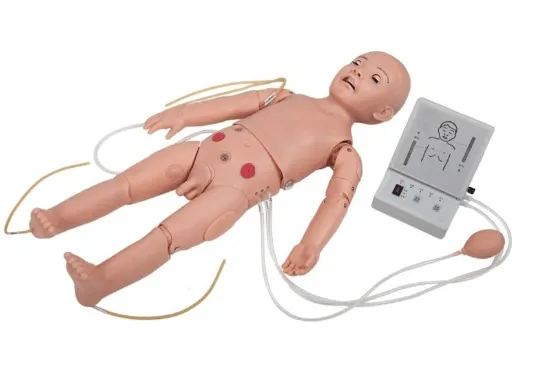Babies, the most innocent and fragile life in the world, need to be cared for with the greatest care and patience. However, the journey of life is always full of unknowns and variables. When babies experience cardiac arrest or breathing difficulties, infant cardiopulmonary resuscitation becomes an emergency measure to protect their lives.

Infant cardiopulmonary resuscitation is a first aid measure that requires highly specialized skills and the ability to respond calmly. Because the body structure and physiological characteristics of infants are significantly different from those of adults, we must be extra careful and cautious when performing CPR. First responders need to accurately determine the baby's condition and quickly adopt correct compression and ventilation methods to restore the baby's heartbeat and breathing functions.
In an emergency, time is of the essence. Therefore, the success of infant cardiopulmonary resuscitation often depends on the response speed and operating skills of the first responder. First responders need to remain calm and collected, quickly assess the baby's condition, and take appropriate first aid measures immediately. At the same time, first responders also need to maintain close communication with team members to ensure that every step in the first aid process is performed accurately.
In order to improve the success rate of infant cardiopulmonary resuscitation, we need to continuously strengthen the popularization and training of relevant knowledge. By holding professional training courses and simulation drills, more people can understand and master the key points and skills of infant cardiopulmonary resuscitation. In addition, we can also increase the public's awareness and attention to infant cardiopulmonary resuscitation by producing promotional materials and carrying out public welfare activities.
Of course, prevention is always the best strategy. Parents and guardians should strengthen daily care of their babies to avoid risk factors that may lead to cardiac arrest or breathing disorders. At the same time, taking the baby for regular health check-ups to detect and treat potential diseases in a timely manner is also an effective way to prevent cardiac arrest in babies.
In short, infant cardiopulmonary resuscitation is an emergency measure to protect fragile lives. We need to improve our first aid skills through continuous learning and practice to protect the safety of babies. At the same time, we should also strengthen our care and attention for babies, so that every little life can grow up healthily and happily.